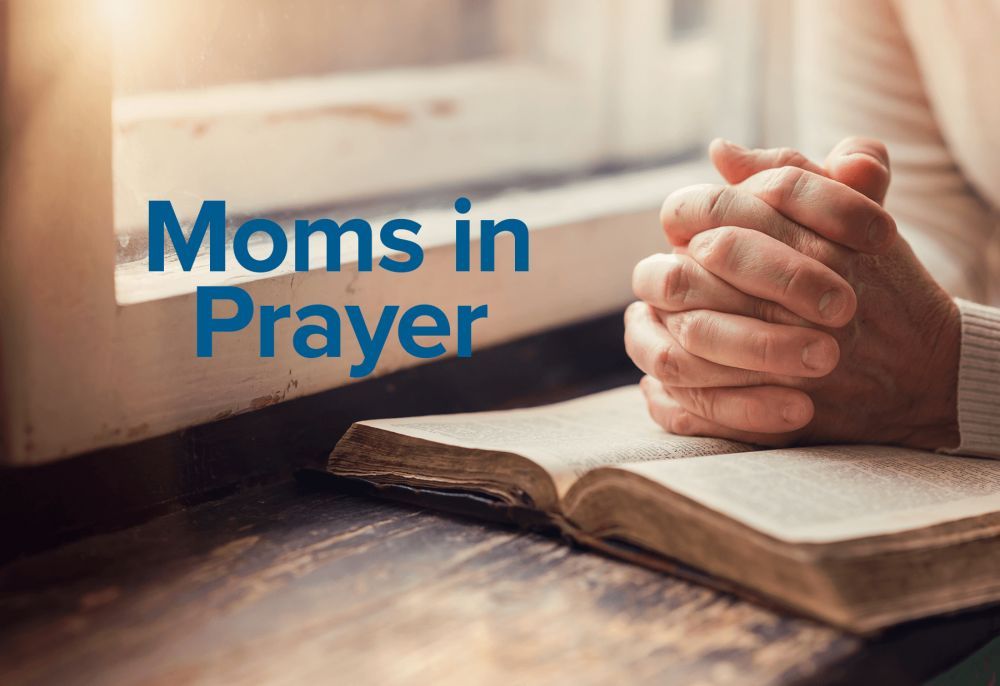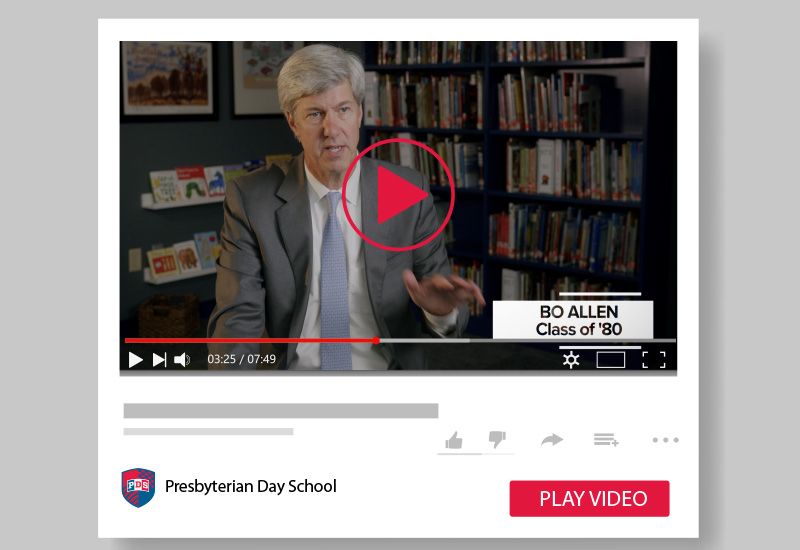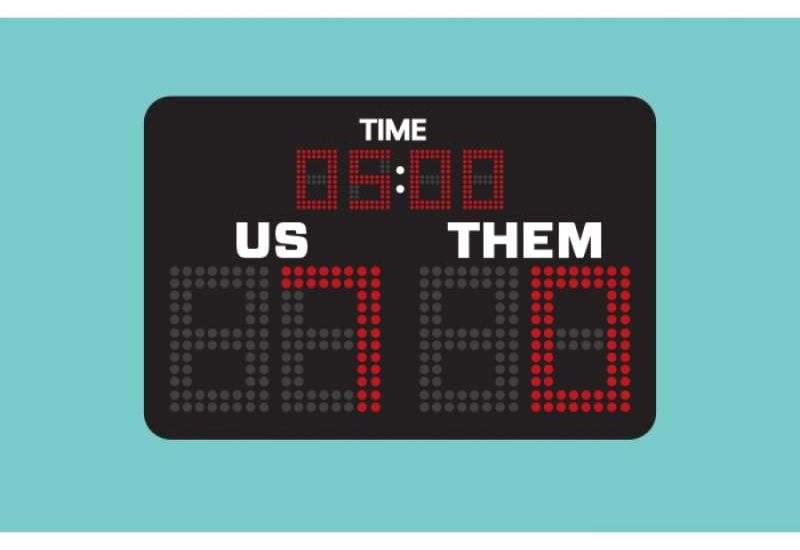Strategic Parenting
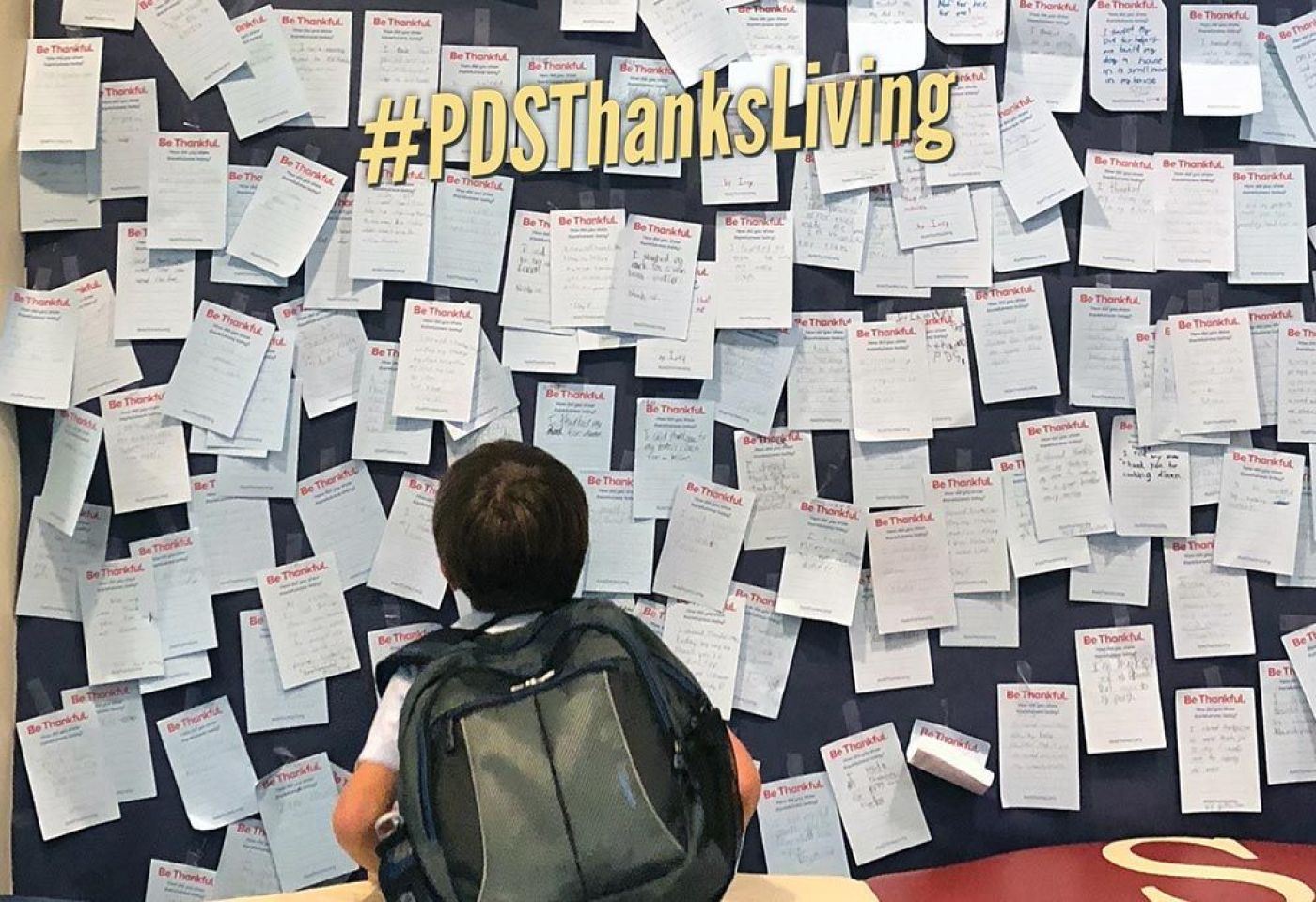


Building Boys, Making Men Menu
Why ThanksLiving Is Just Getting Started
We’re almost finished with PDS’ annual celebration of ThanksLiving — but hopefully we are just getting started living a life of thankfulness.
By this point in November, I hope you’ve had a chance to see the ThanksLiving wall at PDS. Over the past three weeks, our boys have been looking for ways to practice gratitude every day, writing down what they did on a stick note, and sticking that to a big wall at the school. Three weeks in, the notes have completely filled the first section of the wall and are starting to spill around the corner. We love seeing the wall at the school fill up with sticky notes of how boys have shown thankfulness on a daily basis — and not just to get ready for the Thanksgiving holiday.
From 21 Days into 365 Days
These 21 days of ThanksLiving are just the start — a focused time designed to build habits of thankfulness to last through the whole year.
In fact, that’s why our special ThanksLiving campaign lasts exactly 21 days. In 2016, Inc. published an article about new research showing that gratitude physically changes our brains.
Here’s one quote from Harvard researcher and author Shawn Achor that caught our attention:
“Something as simple as writing down three things you're grateful for every day for 21 days in a row significantly increases your level of optimism, and it holds for the next six months. The research is amazing.”
We didn’t just pick 21 as a random number. We want these focused days of ThanksLiving to help every boy at PDS — and every parent — build habits of daily thankfulness.
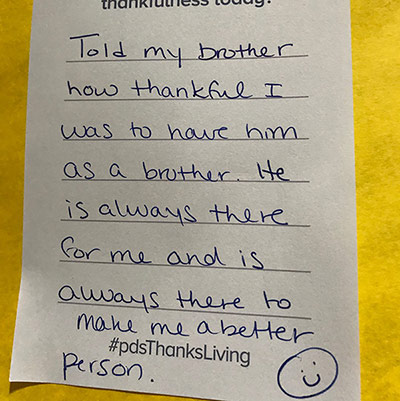
Why Giving Thanks Matters
Being thankful is about more than manners. God commands us to give thanks, and he gives us that command for our good.
God’s plan for our gratitude is much bigger than just saying thanks when something good happens. 1 Thessalonians 5:18 tells us, “Give thanks in all circumstances; for this is the will of God in Christ Jesus for you.”
In all circumstances? That can sound impossible — and on our own, it is. But we’re not left to manufacture gratitude on our own. In Colossians 3:15, Paul explains more: “And let the peace of Christ rule in your hearts, to which indeed you were called in one body. And be thankful.”
Our gratitude isn’t just a response to nice circumstances, but it also doesn’t bubble up from nowhere. It’s connected to the peace of Christ ruling in our hearts.
We give thanks in all circumstances because we know that God is ruling over every circumstance and will be with us no matter what.
We give thanks because we have a God who loves us so much that he was willing to die for us.
We give thanks no matter what we need because we know that our God has taken care of our biggest need — our need for reconciliation with God — so we can trust him with all of our other needs as well.
The Results of Gratefulness
As we build the habit of giving thanks to God, it affects how we think and act. The Inc. article quoted earlier explains, “The more you practice gratitude, the more attuned you are to it and the more you can enjoy its psychological benefits.”
Among other things, gratitude protects us from feelings of entitlement, envy, and resentment. What does that mean?
Entitlement - the belief that one is inherently deserving of privileges or special treatment.
Envy - a feeling of discontented or resentful longing aroused by someone else’s possessions, qualities, or luck.
Resentment - a feeling of anger or displeasure stemming from a belief that one has been wronged by others or betrayed.
Without gratitude, entitlement, envy, and resentment can sap away our joy. But consistent gratefulness takes our attention off of what we think we deserve. Instead, it puts our focus on everything we can be thankful for. And ultimately, it reminds us of the One who is ultimately responsible for anything good in our lives — God.
3 Ways to Practice Thankfulness
Write your own ThanksLiving post-it note. Look for a way to express your thankfulness to someone today. Then, write down what you were grateful for and how you showed that. This won’t just set a good example for your children — writing things down helps us think through things and remember them.
Make a family thankfulness list. Take some time on Thanksgiving to get your family together and make a list of all the things the family is thankful for. For example, your oldest child could ask each family member and write everything down, and then they could read the list out loud before the Thanksgiving meal prayer
Look for ways to practice ThanksLiving year-round. Consider what changes you could make in your home, at work, or in other areas of your life to live a life of ThanksLiving beyond November.



